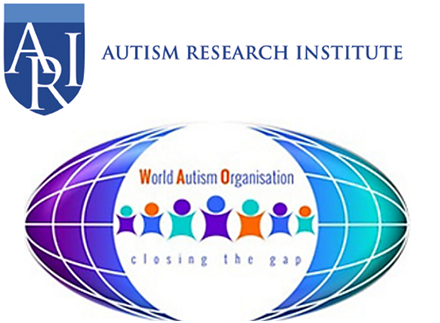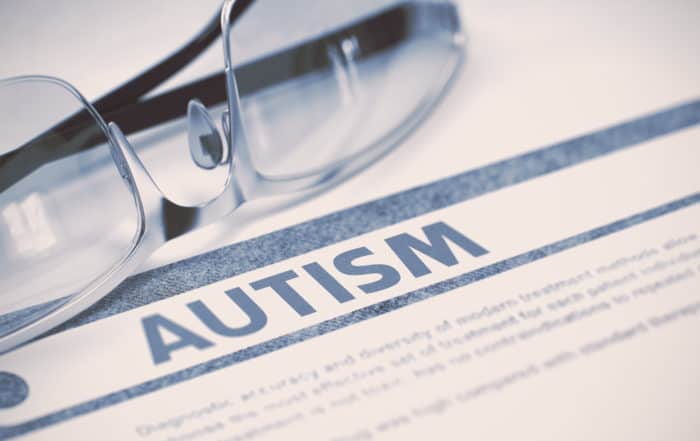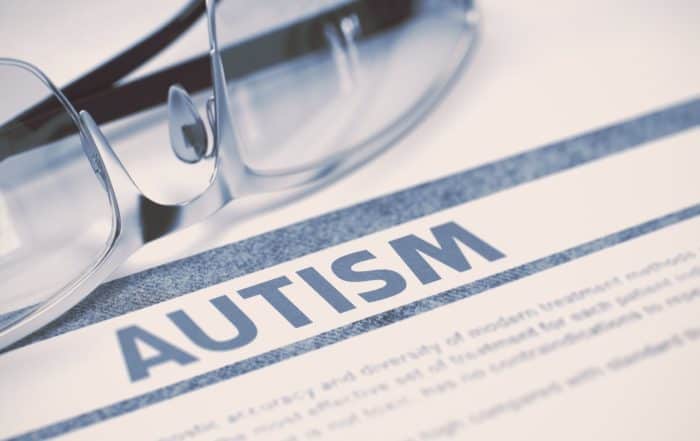Hilde Geurts, Ph.D., discusses the impact of aging on health, quality of life, and cognition in autistic adults. She discusses aging in the general population and how it relates to autistic experiences. The speaker considers differences in aging experiences across groups and how they inform autism care and research. Geurts dives into cognition and aging, highlighting potential cognitive aging profiles for autism and what evidence there is to support them. The presenter discusses avenues and caveats for future research before the Q&A.

In this webinar:
0:00 – 4:55 – Organization introductions
4:56 – Speaker and affiliate introduction
7:20 – Outline
8:50 – Aging in the general population
13:15 – Autism and aging
15:30 – Health and quality of life across groups
24:10 – Similarities in differences across groups
30:00 – Aging and cognition
36:00 – Cognition profiles
41:45 – What’s next?
44:50 – Q&A
Aging in the general population
Geurts outlines presentation goals and highlights the overlap of mental health, cognition, and quality of life (QoL) (7:20). She briefly describes a ten-year study on autism heterogeneity from which much of the data discussed is drawn (8:30). The speaker outlines the three pillars of a successful aging process, as described by Rowe & Kahn in 1997:
- Minimize risk of disease and disability
- Maintain physical and cognitive function
- Continue engagement with life
She explains that our bodies undergo physical and cognitive changes as we age, like brain shrinkage, decreased flexibility, and increased forgetfulness. Conversely, happiness and quality of life (QoL) increase with age in the general population (9:55). Geurts lists risk factors for aging, including genetics, poverty, stress, physical and mental health, and a lack of social support. She underscores that many of these are more prevalent in autistic adults and considers whether or not this means that autistic people are at risk for aging faster with a lower QoL (11:30).
- Aging and heterogeneity regarding autism spectrum conditions: a protocol paper of an accelerated longitudinal study (Geurts et al., 2020)
- Successful Aging (Rowe & Kahn, 1997)
Autism and aging
The presenter describes patterns of co-occurring conditions in autism. She cites studies showing that those who receive a late autism diagnosis have a higher chance of mental health disorders and that people assigned female at birth have a higher chance of general health problems (13:15). Therefore, Geurts considers whether late-diagnosed female-presenting autistic adults are at higher risk for mental health difficulties (14:45).
- The physical and mental health of middle-aged and older adults on the autism spectrum and the impact of intellectual disability (Bishop-Fitzpatrick & Rubenstein, 2019)
- Health Conditions and Functional Status in Adults with Autism: A Cross-Sectional Evaluation (Fortuna et al., 2016)
- General health of adults with autism spectrum disorders–a whole country population cross-sectional study (Rydzewska et al., 2019)
- Objective and subjective psychosocial outcomes in adults with autism spectrum disorder: A 6-year longitudinal study (Scheeren et al., 2022)
- Associations between co‐occurring conditions and age of autism diagnosis: Implications for mental health training and adult autism research (Jadav & Bal, 2022)
Health and quality of life across groups
Geurts details a recent study showing that autistic adults have more mental health conditions compared to controls, with a peak in prevalence between 40 and 54 years old (15:30). She describes research that revealed autistic women experience more menopausal problems and depressive symptoms than their non-autistic peers. Therefore, the speaker posits that the observed peak in middle-aged mental health conditions could be in part attributed to the menopausal experiences of female-presenting autistic adults (17:00).
- Psychiatric Co-occurring Symptoms and Disorders in Young, Middle-Aged, and Older Adults with Autism Spectrum Disorder (Lever & Geurts, 2016).
- Menstruation and menopause in autistic adults: Periods of importance? (Groenman et al., 2022)
The speaker presents data showing a decline in social anxiety with age in autism, where participants reported caring less about what other people think of them and feeling more comfortable in their own skin (20:15). She notes the impact of camouflaging on mental health and considers the intersection of age, camouflaging, and mental health in autism (22:35). Geurts summarizes that research to date shows both mental and physical health problems are more common in autistic adults, though causes differ across groups (i.e., menopause, camouflaging). She asserts that these differences are essential for understanding autism subgroups (23:38).
- How to measure camouflaging? A conceptual replication of the validation of the Camouflaging Autistic Traits Questionnaire in Dutch adults (van der Putten et al., 2023)
The similarities and differences between autistic profiles are crucial for identifying subgroups of autism and finetuning research and care. Geurts describes a study that revealed autistic adults feel more vulnerable and like they have less control and emotional support compared to non-autistic adults (24:10). Feelings of control and emotional support were stable at two and five-year follow-ups and predicted mental health and QoL (27:50). The speaker notes that between 14% and 17% of participants switched profiles across time, underscoring the need to study those changes and how they affect QoL and mental health (28:30).
- Finding Similarities in Differences Between Autistic Adults: Two Replicated Subgroups (Radhoe et al., 2023)
Aging and cognition
Cognition is a predictor of Neurocognitive Disorders (NCD), like dementia, which are diagnosed five times as often in autistic adults compared to the general population (30:00). NCD diagnoses generally include:
- Cognitive challenges.
- A significant decline in daily life.
- Low performance in at least one cognitive domain (i.e., memory, flexibility, social cognition).
The speaker cites research revealing more self-reported cognitive challenges and lower performance in social and quick response (flexibility) tests for autistic adults compared to controls (32:18). She asserts that although autistic people are more likely to meet phenotypic NCD criteria, the underlying mechanisms may not align.
- Prevalence of physical and mental health conditions in Medicare-enrolled, autistic older adults (Hand et al., 2020)
- A longitudinal study on cognitive aging in autism (Torenvliet et al., 2021)
- Age-related differences in cognition across the adult lifespan in autism spectrum disorder (Lever & Geurts, 2016)
- Parallel age-related cognitive effects in autism: A cross-sectional replication study (van der Putten et al., 2022)
- Self-reported cognitive decline among middle and older age autistic adults (Klein et al., 2023)
For example, research shows that depressive symptoms may drive self-reported cognitive challenges in autism, meaning that mood, not memory, is the issue (34:00). Geurts notes that cognitive differences were observed across autism independent of age, meaning that there is no significant evidence that autistic individuals experience faster cognitive decline compared to the general population (35:24).
- When mind and measurement diverge; the interplay between subjective cognitive complaints (SCCs), objective cognition, age, and depression in autistic adults (Torenvliet et al., 2024)
- The cognitive profile of middle-aged and older adults with high vs. low autistic traits (Stewart et al., 2023)
- A longitudinal study on cognitive aging in autism (Torenvliet et al., 2021)
Cognitive aging profiles
Geurts outlines three cognitive aging profiles comparing autism and controls: Faster, Parallel 1, and Parallel 2, where Parallel 1 has no cognitive difference by age and Parallel 2 does. No conclusive or replicable evidence supports the Faster cognitive aging profile for autism, though comparatively early decline has been found in individual cognitive domains (36:00). The speaker describes recent research suggesting parallel cognitive aging patterns between autism and the general population (37:00). For example, an autistic middle-aged person may have the same cognitive profile as someone who is older and not autistic. Geurts asserts that this could be why some autistic adults feel older or that they are declining faster, though this may not be the case (38:41). The presenter urges viewers to be careful in diagnosing NCD, especially in autistic adults, where NCD presentations could result from a different, less-understood cognitive profile (39:53). She reiterates that little to no evidence exists for accelerated (faster) cognitive aging in autism, though some adults with autism have old-age profiles (40:30).
- One size does not fit all: An individualized approach to understand heterogeneous cognitive performance in autistic adults (Torenvliet et al., 2023)
What’s next?
Future research on the intersection of cognition, aging, and autism must consider how the age of diagnosis and assigned sex seem to play a role. Geurts also underscores the need for research that includes people with intellectual disabilities and early diagnosis (41:45).
- Autism Through the Ages: A Mixed Methods Approach to Understanding How Age and Age of Diagnosis Affect Quality of Life (Atherton et al., 2020)
- Associations between co‐occurring conditions and age of autism diagnosis: Implications for mental health training and adult autism research (Jadav & Bal, 2022)
- Objective and subjective psychosocial outcomes in adults with autism spectrum disorder: A 6-year longitudinal study (Scheeren et al., 2022)
- Cognitive and language skills in adults with autism: a 40-year follow-up (Howlin et al., 2014)
The presenter asserts that current avenues of research should focus on the interplay of mental and physical health problems in autistic adults, drivers of seemingly age-related health changes, and subgroups that may be at risk for faster aging. She notes two studies currently under review for publication (42:30). Geurts provides thanks and acknowledgments before the Q&A (44:50).
- The prevalence and incidence of early-onset dementia among adults with autism spectrum disorder (Vivanti et al., 2021)
- The influence of age and ASD on verbal fluency networks (Baxter et al., 2019)
Originally published April 9, 2024
The speaker:
 Hilde Geurts, Ph.D., is currently a professor in clinical neuropsychology and head of the section Brain & Cogntion at the Department of Psychology of the University of Amsterdam. Dr. Geurts studies autism and ADHD. Her starting point is the neurodiversity perspective, and she focuses on cognition (especially cognitive control/executive functioning), inter & intra individual variability, quality of life as well as interventions across the life span.
Hilde Geurts, Ph.D., is currently a professor in clinical neuropsychology and head of the section Brain & Cogntion at the Department of Psychology of the University of Amsterdam. Dr. Geurts studies autism and ADHD. Her starting point is the neurodiversity perspective, and she focuses on cognition (especially cognitive control/executive functioning), inter & intra individual variability, quality of life as well as interventions across the life span.
Take the knowledge quiz
Can’t see the quiz below? Take it online HERE
How Age – and Age of Diagnosis – Affect Quality of Life
Dr. Gray Atherton discusses the critical role of age and age of diagnosis in shaping the quality of life for autistic individuals. She provides a brief history of autism understanding and considers
Behavioral Support – Beyond Early Intervention
Due to technical difficulties, playback has been delayed. Check back later. About the speaker: Dr. Melissa Olive’s brother, Mac, is the foundation of her mission. In her early teens Missy,
ABCs of Behavioral Support in 2021
Melissa Olive, Ph.D., BCBA-D describes the components of a quality behavioral support program. She discusses controversial characteristics of applied behavioral analysis (ABA) and outlines current ABA best practices. Olive summarizes the "ABC view"
Editorial – Diagnosis and Screening for Autism: Past, Present, and Future
While the diagnosis of some syndromes is fairly straightforward, diagnosing autism spectrum disorders (ASD) has been and continues to be a challenge. In this editorial, I review the progress we have made
Assessing and Treating Challenging Behavior in Individuals with Autism
Lauren Moskowitz, Ph.D., discusses the complex aspects of challenging behaviors and the importance of conducting a thorough functional behavioral analysis to create effective treatment plans. The talk underscores the importance of recognizing challenging behaviors
ABA in Schools – Quality Education Programs in Schools
Presented by Ron Leaf, PhD It's Time for School: Building Quality Education Programs for Students with ASD Presented by Ron Leaf, PhD at the Fall 2012 Autism Research Institute Conference School Districts across







